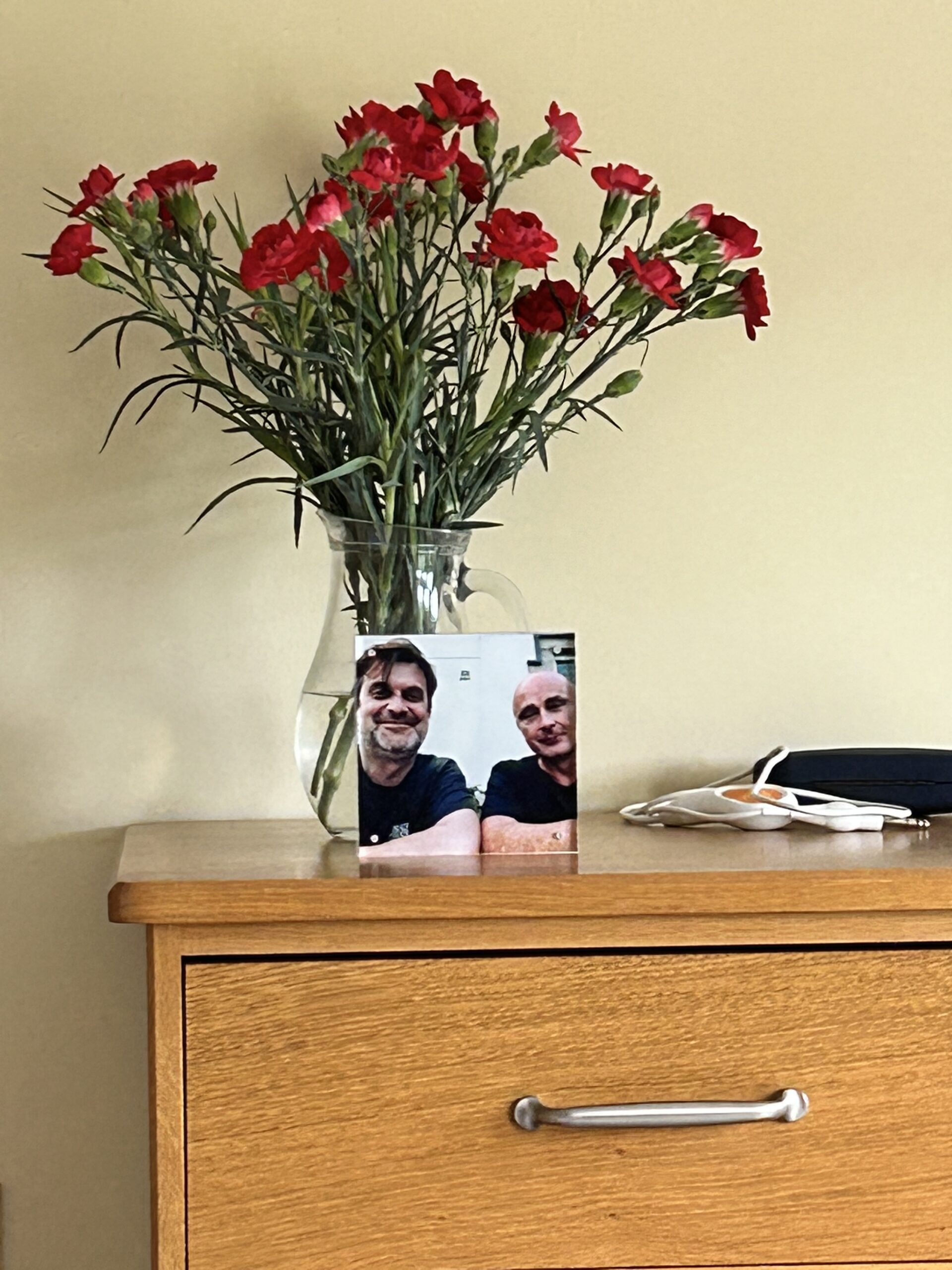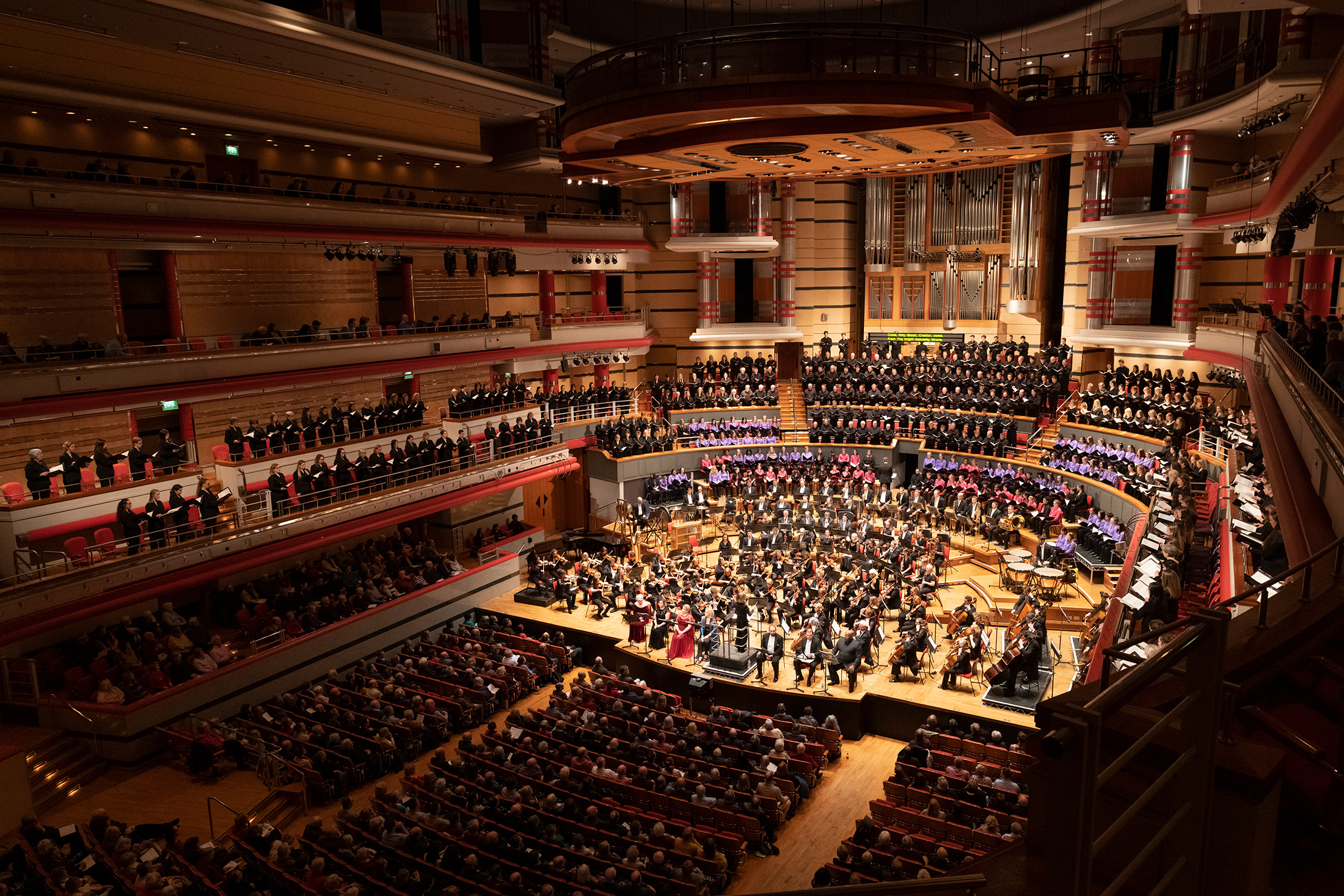I am visiting my mum today. She’s lies in a bed in a nursing home. She’s sleeping when I arrive. Silvery grey hair frames her long oval face. I can’t bring myself to wake an octogenarian whose body is clearly in need of rest at 10.45am, so I pull up a chair and start reading my book.
Focus is difficult. On the chest of drawers there’s a picture of me and Simon taken during a Rossi family holiday to Cornwall mid-pandemic. Happiness captured forever in a square frame.
From time to time mum’s legs shake sporadically. She’ll cough with her eyes shut, pointlessly tapping her chest with her good hand the same way she did when I was a kid. A cruel reminder of the damage caused by the stroke back in August ’21. I remind myself that what is laid out in front of me is not recovery but existence.
I don’t enjoy these visits. When I’m away I feel guilty. I ruminate on the things I haven’t done. When I’m here it feels like duty, and I am not good with small talk. Ask me how I am and I will tell you. Spare me the superficial shit. I want you to dig into the details. It crushes me that Mum’s neural pathways refuse her the opportunity to do so.
When she wakes up there is a glimmer of recognition. We begin on a course of small talk. I stall when I realise the cruelty of my asking her how she is.
She asks me about work. This is A Good Sign.
I tell her about what’s been going on – the opportunities I’ve had this past few months, the people I’ve worked with, the people I’ve seen and the triumphs I never thought I’d accomplish. Recent projects. Unsolicited compliments on my work. The immense pride of being associated with something ‘highly-regarded and highly prized’ in the classical music world. The way that work seemed to fall in my lap and how sad I feel it’s come to an end. I knew it would – that is the way of self-employed life, I tell her. That is the cost of the freedom self-employed life affords.
Such bittersweet nuance is difficult to convey to her especially as there are times when it feels like she has momentarily disappeared. It’s not only those damaged neural pathways but also because the classical music world I step in and out of is bewildering to her. This despite the fact that it was her who set me on a path towards it.
I think it was her mum who played the piano. There is evidence in Thoroughly Good HQ of my mum’s own pursuits learning to play the instrument after she’d given birth to my sister. I can’t be sure, but I think my Mum even started learning at the same time or after my sister did and before I was born. There are ABRSM grade books with different names at the top, given to me a few years back.
Mum was keen for me to learn. Piano lessons at Park Croft School on an upright piano adorned with a candlelabra. Lessons given by Mrs FE Secker (years later in her terraced house in Bury St Edmunds, a short walk away from the Greene King brewery) were conducted with a long pink lead pencil poking at the page in time with my irregular beat, words of encouragement occasionally written in illegible scrawl on the manuscript.
These lessons were part of a campaign of betterment both for me and my mother. Private piano lessons were a passport to higher status. A competitive world too, me pitched against peers and incentivized with gifts. These gifts came at a price – the expectation that I would perform at home, both for my mother and her guests. I was the in-house ‘entertainer’ on a zero-hours contract with a flaky attendance record.
I could be relied upon to resist my role as a performing monkey. I would frequently stop playing the moment I knew Mum was listening. I resented her listening. I wasn’t playing for her. I was practising for myself.
The world was a hostile place where one had to be on one’s guard, but it was one where hard work and good grades would protect you. It might even win you friends. At least that’s what I like to think she believed given the magnetic charisma one her of peers – Dudley Moore – displayed during rainy breaktimes when she was at school. The piano enabled him to flirt, him displaying his prowess at the keyboard, widening eyes and increasing heart rates in the process. She followed Dudley Moore’s career with delight. She must have been mortified when she saw Derek and Clive.
My hunch is that she felt as though she had lost me when my music-making took a different turn. Around the mid-late 80s I wanted to change music teachers, first piano and then later clarinet teacher too. I went for consultation lessons and started practising at school for more hours than I would ever do at home. Privacy drove motivation which in turn drove success. All this triggered by the arrival of another musician at school whose dedication to practice transformed the process from chore to joy.
Rebecca’s dedication and discipline lit the path. Practice was more than just repeating scales and arpeggios in pursuit of marks. It was an opportunity to take your time to produce sound, listen to it and adjust accordingly. This was about craft not competition.
This change in mindset would have been a world away from my mother’s hopes, dreams and needs. That schism was further widened when more focussed practice resulted in different opportunities beyond school and private tuition.
Music-making at Suffolk Youth Orchestra was done with others on a different instrument on the other side of the county, necessitating longer than was convenient car journeys, concert experiences that were altogether different from those my parents had had at school consisting of music that was entirely new to them and seemed to go on for a whole lot longer than that they’d usually hear on Radio 2. “It was all just a bit too heavy for me,” she said to me on my 40th birthday ten years ago. “I didn’t really enjoy it.”
It was in this world that I found a sense of purpose. This a stark contrast to my education at a school where despite the very best efforts of music professionals, the school just didn’t see the value music provided for its brand reputation. Sport was where it was at for Culford School (hence why one of its most famous alumni football journalist John Motson often featured heavily in its external comms). If you could run with a ball and get it in a goal you are far greater use to Culford reputationally than someone who could hold a tune, play it tune or at the same time as a pianist. And that failure to recognise music as equally valuable meant anyone who pursued it were legitimate targets as far as the bullies were concerned.
Little wonder then that the classical music world in my initial experience as participatory music-making was a haven and one that I continued to seek out as the years went on, first at university, later in arts management, all the while no doubt my part in it becoming ever more obscure and ever more difficult to comprehend. Now latterly in the digital marketing work I do, there is a sense of comfort being in this industry.
Not being a classical music native these touchpoints that underpin my self-confidence and self-assurance are completely lost on her. They always have. When I worked at the BBC there was so much more I could trade on. Graham Norton, Strictly, the Proms were all valuable currency that meant I didn’t need to go into the detail of what it was I actually did.
Beyond the BBC in the ‘dubious’ world of self-employment where contracts come and go, the brands I’ve ended up sidling up alongside – the ones that make me beam with pride – mean nothing to her. I can see it in her eyes, or is that dementia? These personal achievements I think, self-propelled and self-created, the consequence of an enormous amount of time, energy and dedicated practice. A regular habit established and embedded as a result of her.
All rather sad, I’m thinking as I listen to Brahms 3 on the journey home to London. Mind you. She does have a picture of her son and his husband on her chest of drawers.



